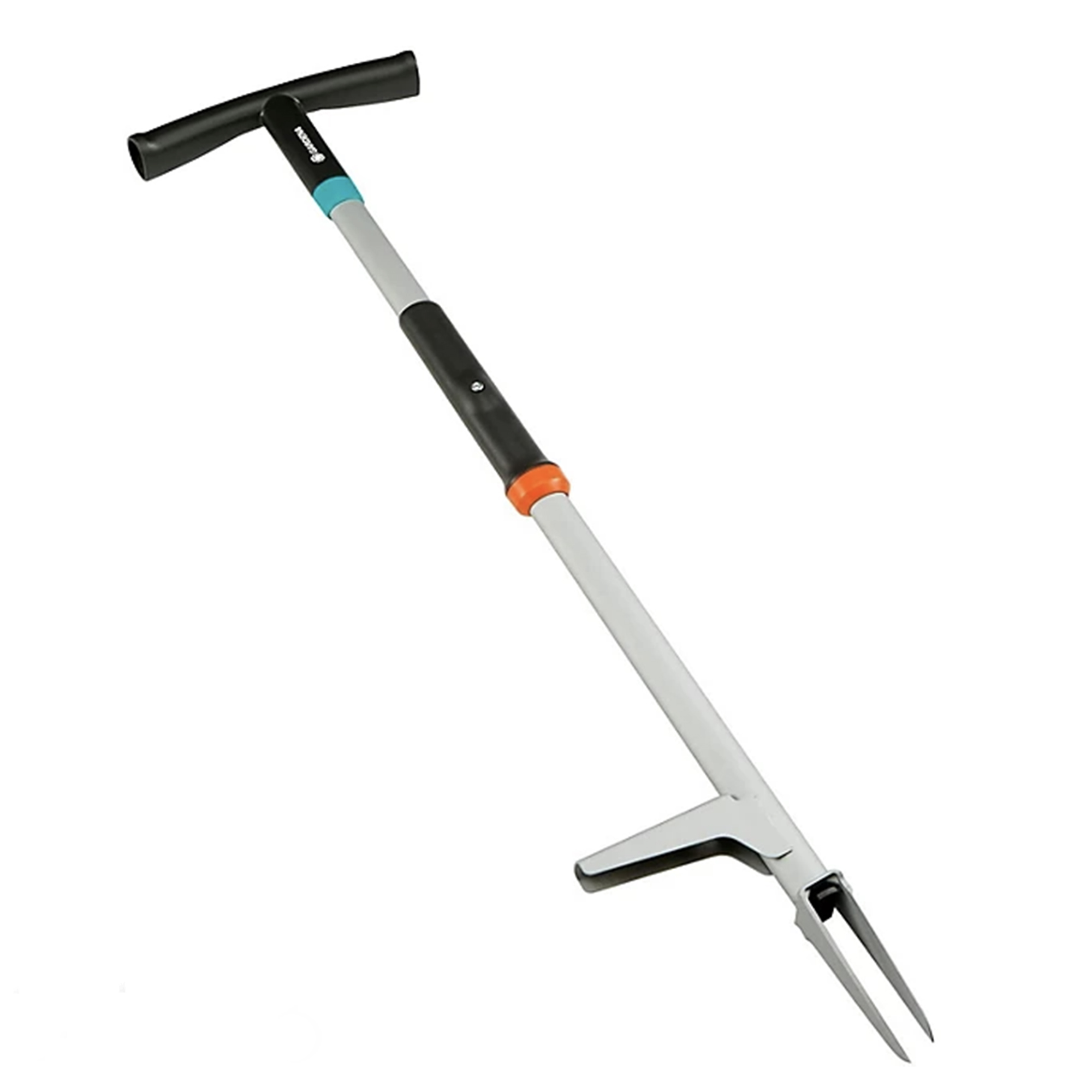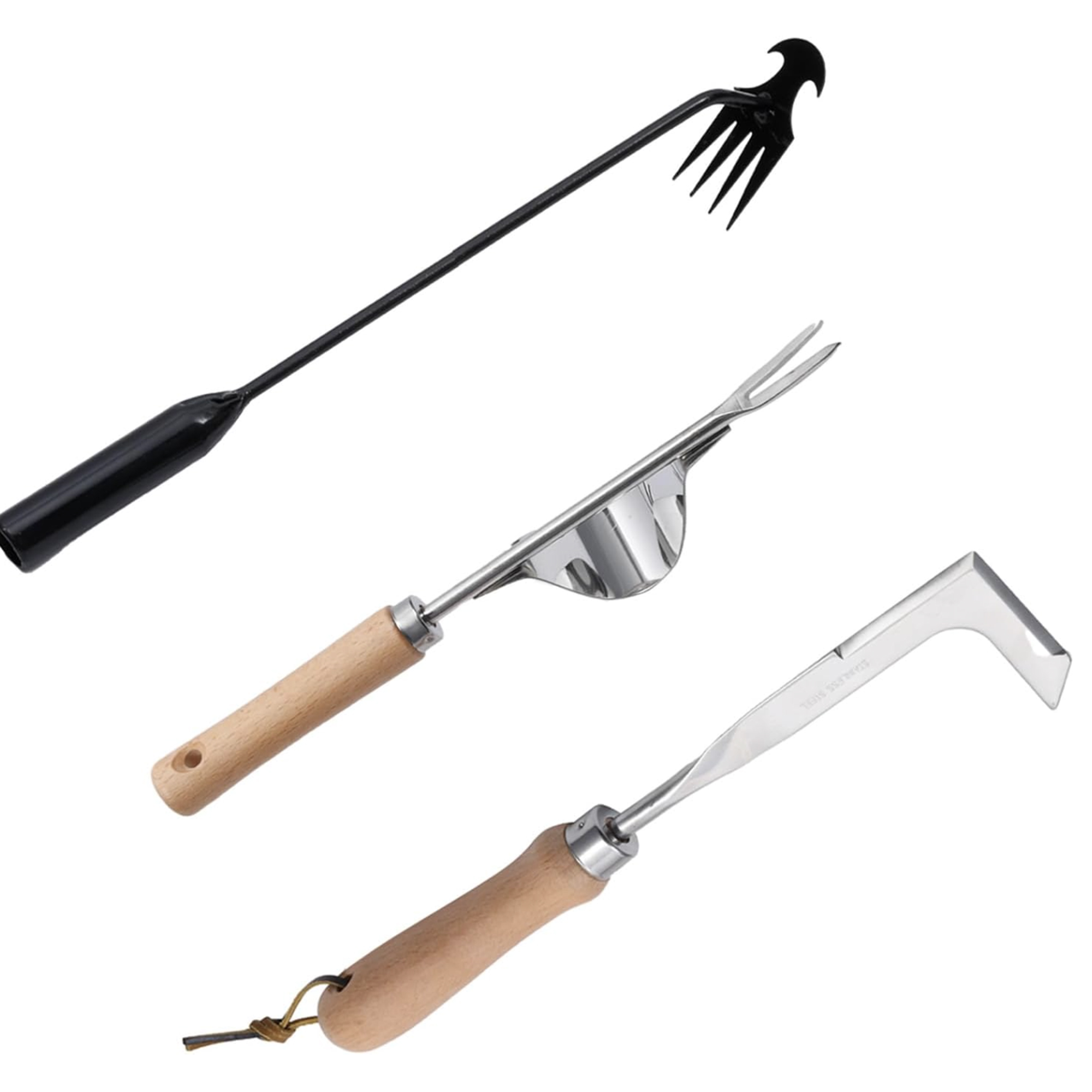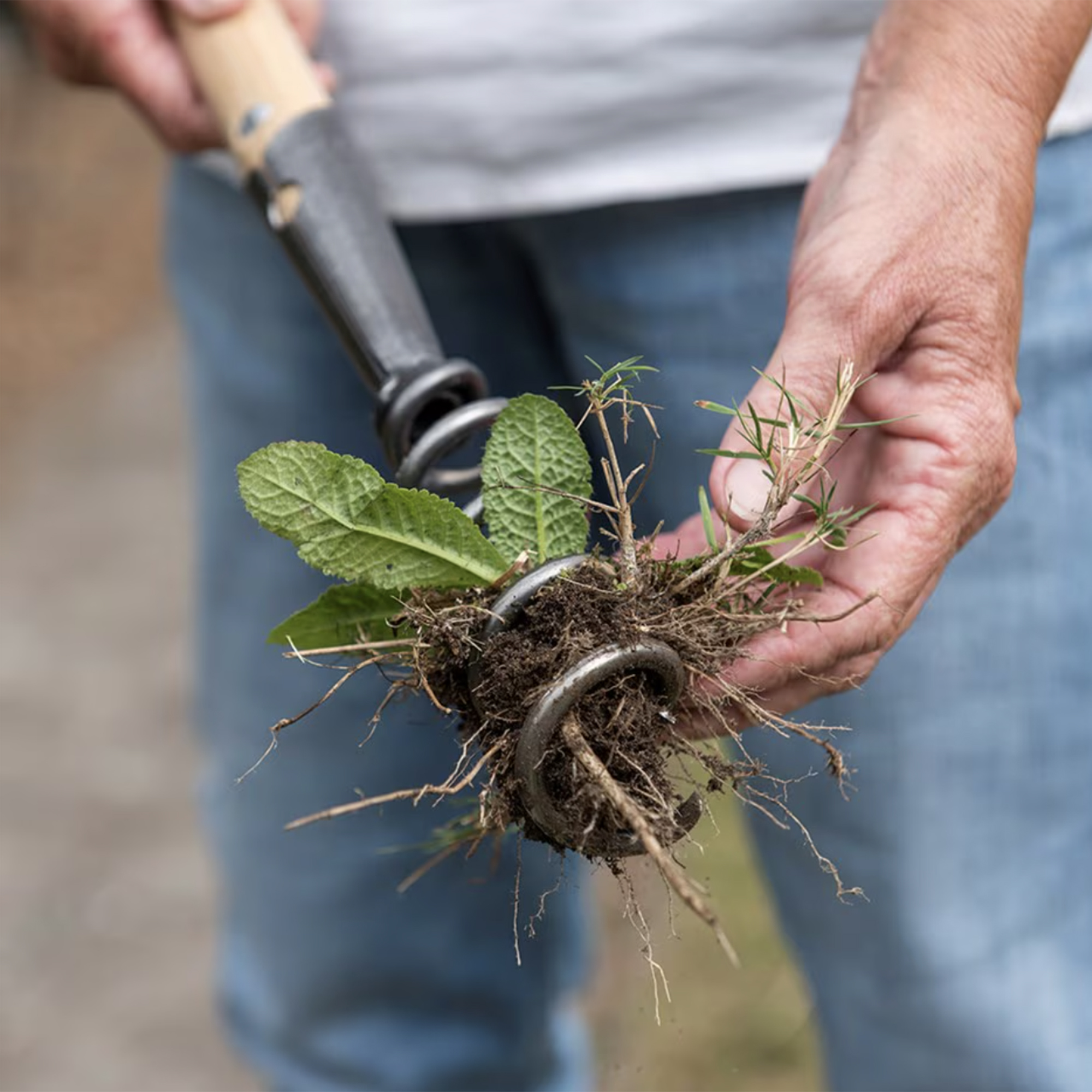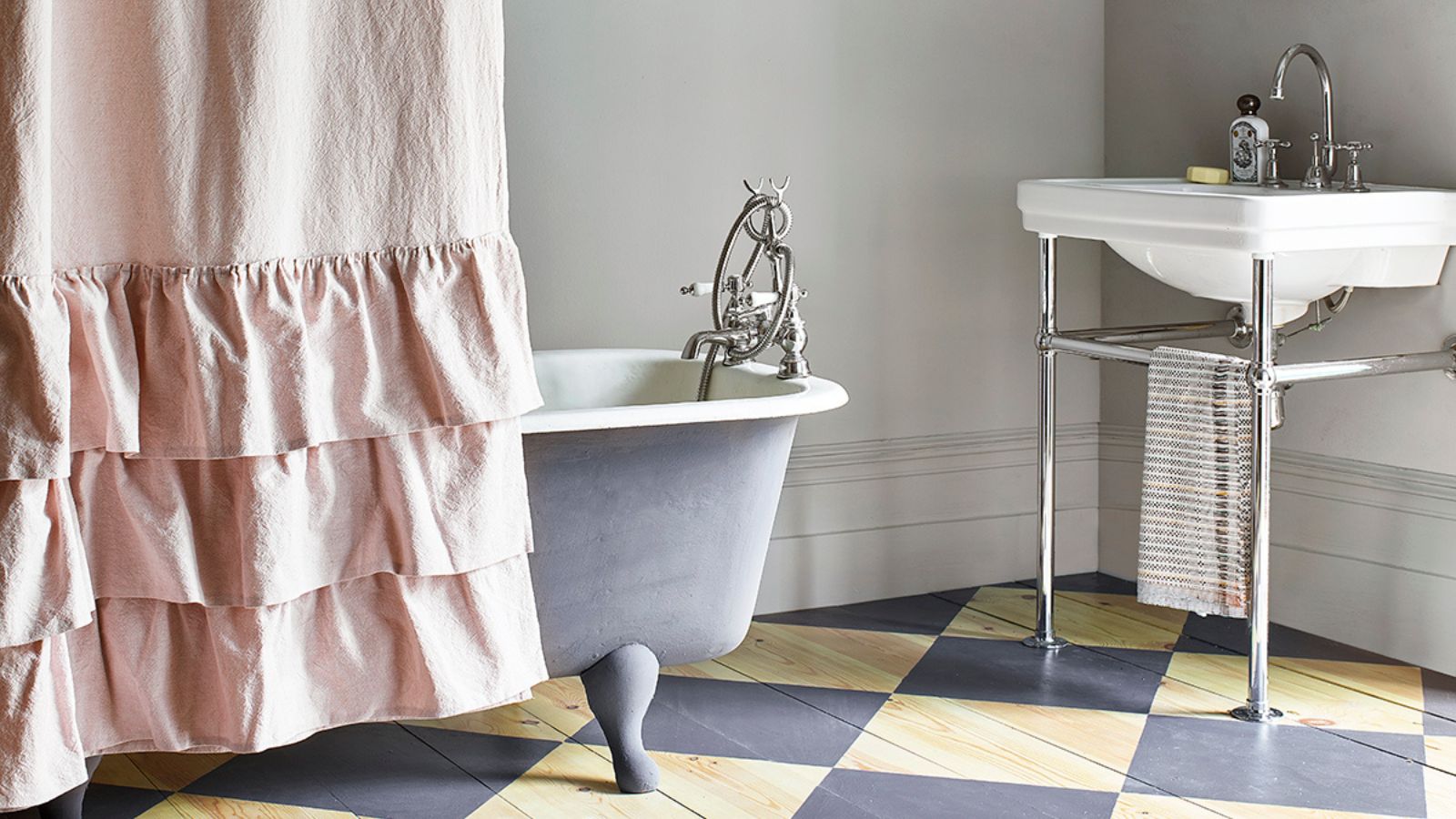How to kill weeds naturally — we explore 8 eco-friendly methods and how to use them
Protect wildlife and the environment and avoid the harsh chemicals in weed killing products
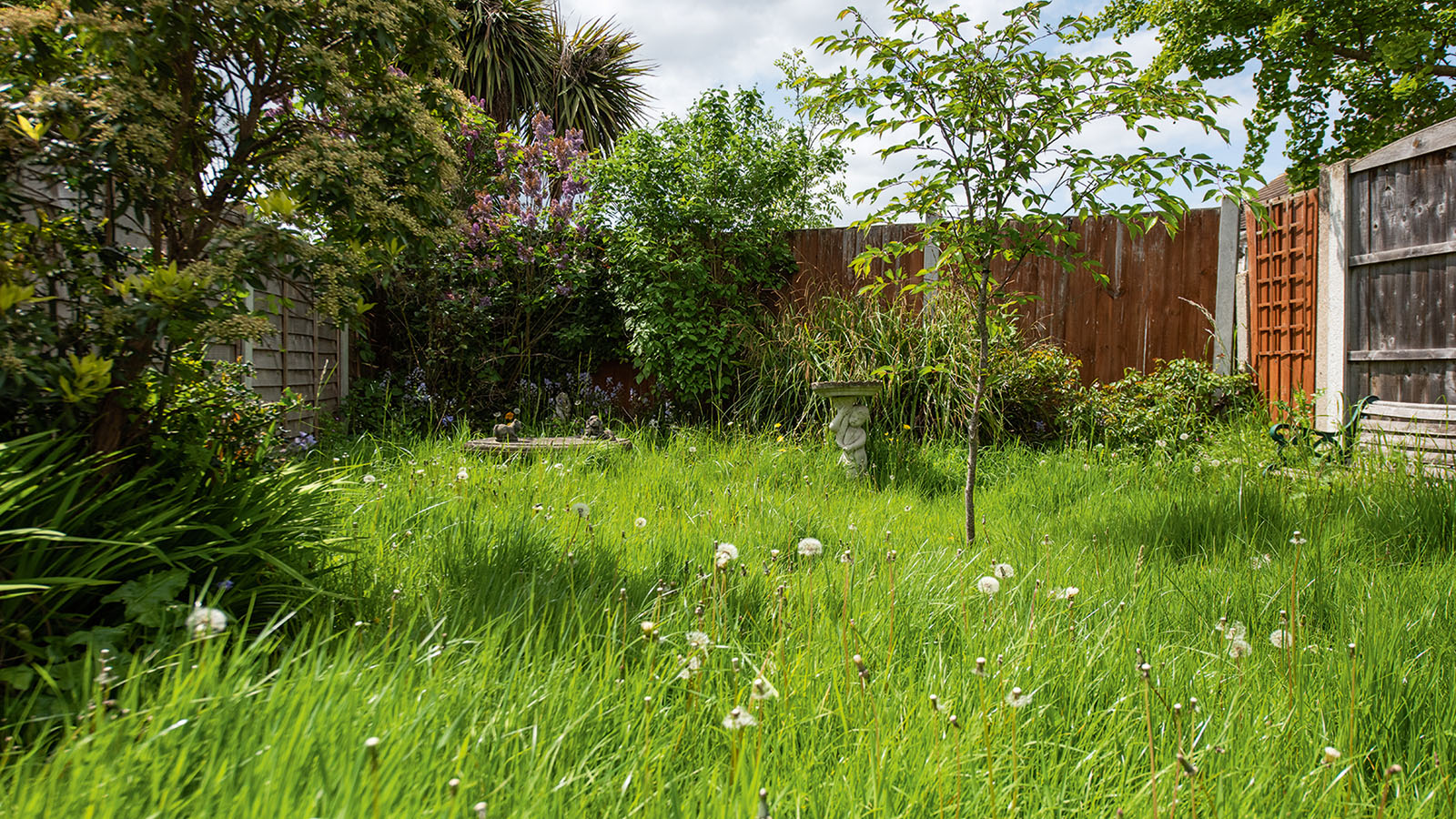
Knowing how to kill weeds naturally is important because many weed-killing products contain harsh chemicals that can be harmful to surrounding plants and wildlife.
The chemicals in the weed killer make their way into the soil. When it rains, the chemicals can be washed away and could make their way into surrounding areas or could even end up in rivers or lakes, polluting the water.
Most gardeners and horticulturalists highlight natural weed killers and preventative techniques as being better for an all-round healthy, thriving garden.
Read on for the best ways to get rid of weeds naturally and stop them ruining your garden design.
8 ideas on how to kill weeds naturally
Organic gardening emits fewer emissions, uses less energy, and may improve biodiversity. It's important to note however that some of the natural methods listed below may not work as well as chemical weed killers.
In many cases, you will need to repeat the process several times before the weeds are eradicated completely. Some may also affect the surrounding plants and grass, so you need to be careful during the process. Which is also true of chemical weed killers!
But have a read for yourself and decide which of these methods for tackling weeds work for you.
Bring your dream home to life with expert advice, how to guides and design inspiration. Sign up for our newsletter and get two free tickets to a Homebuilding & Renovating Show near you.
1. Pull the weeds up by the root
If you just have a few weeds here and there, you may be able to get rid of all of the weeds by hand. Removing the root is the most important thing to remember when pulling up weeds.
Pull carefully at the base of the weed to make sure it is pulled out completely. If you are pulling up nettles or a weed you do not recognise, always wear gloves when doing so.
If you struggle to pull the roots up with just your hands, consider investing in a weed pulling tool like this inexpensive Spear & Jackson 4059NB Elements Dandelion Weeder, 35 x 3.5 x 4 cm, Blue at Amazon. These can be especially useful when you have a lot of weeds to remove.
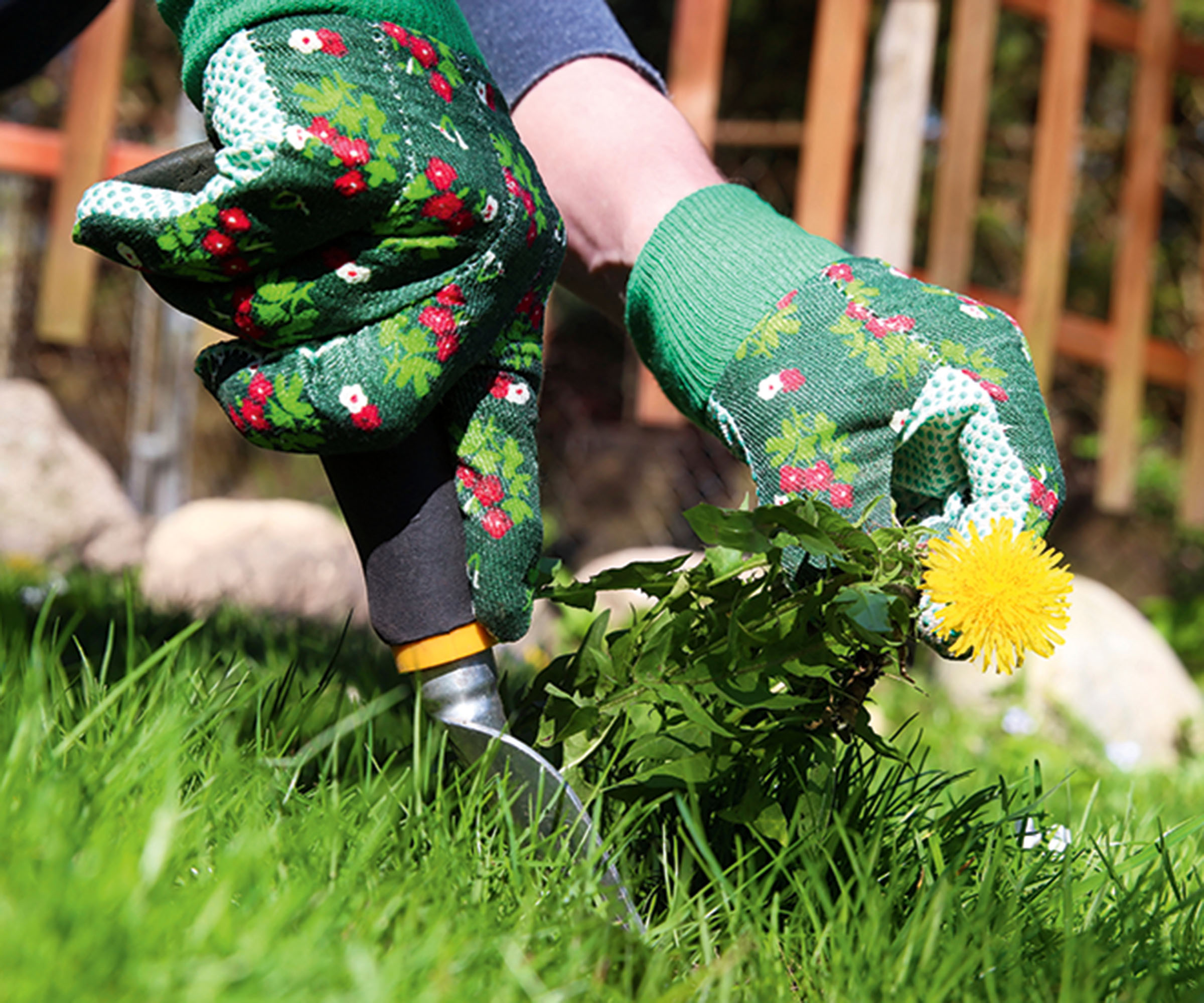
Shop weeding tools
2. Mulch your garden to suppress weeds
While this won't technically kill weeds, mulching can be an effective prevention technique for weeds in your garden. This is the process of adding a material such as wood chippings over your soil.
"One of the best ways of preventing weeds is by putting a layer of mulch, around 4-6 inches, on top of your beds, usually around mid-late spring before many weeds begin to grow," says James Ewens.
"The mulch prevents weeds from getting the light they need to grow strong, while also acting as an impenetrable barrier for any trying to sprout through the surface. While unfortunately not effective for weeds that have already come through, it acts as an incredible preventative measure for those waiting to spread through your garden,” says James.
Mulching around established plants will suppress new weed growth as well as helping your soil retain moisture in hot weather.
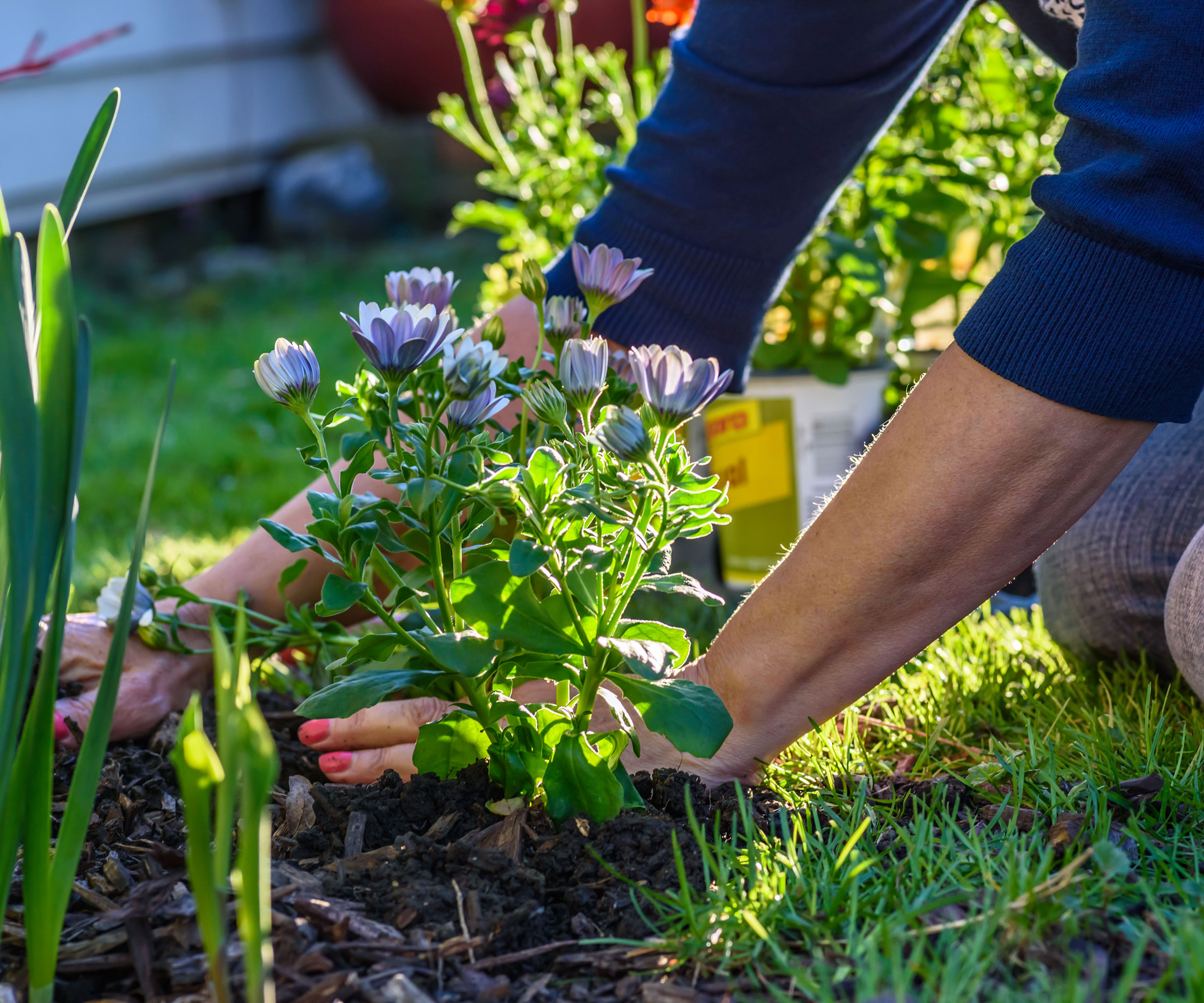
3. Use lemon juice
Simply cut a lemon in half and then squeeze the juice over the weed. The citric acid in the lemon should kill the weed within a few days. This method is especially effective when there is strong sun shining on the weeds. The lemon juice can be used as it is, there is no need to dilute it.
Alternatively, you can get some powdered citric acid, like this bucket of citric acid from Amazon, and mix this with water in a spray bottle. Then, simply spray the weeds with the solution.
It's important to bear in mind that lemon juice will kill any plant and can't target weeds specifically. So be sure not to spray too vigorously on your lawn or other flowers.
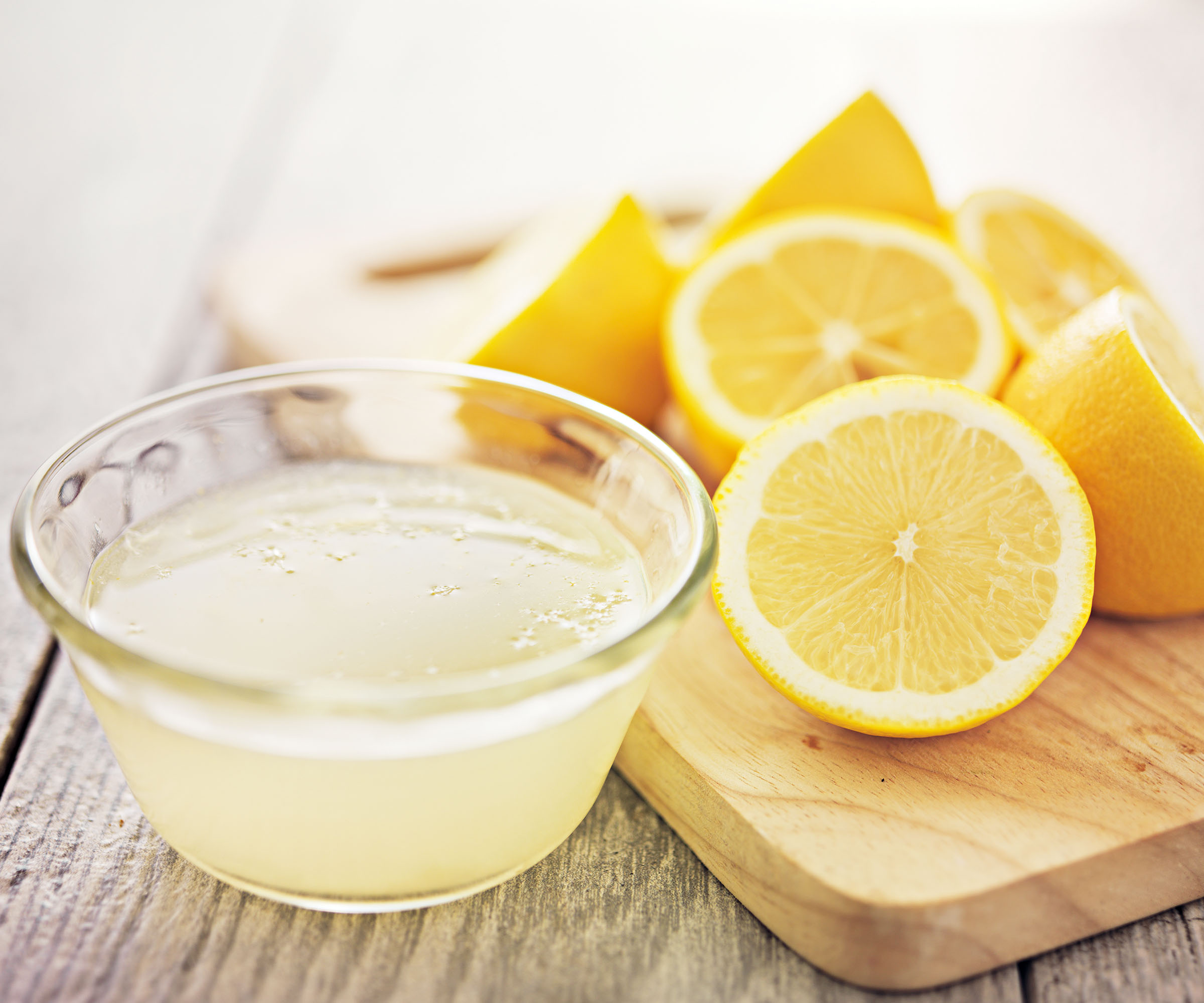
4. Add salt to kill weeds naturally
Jamie Jones, outdoor living specialist from Open Space Concepts says: “For a natural way to kill weeds from your garden, make a salt solution consisting of one part salt with two parts water. Mix the solution together before pouring directly onto any weeds or in the cracks in your patio. This will help to dehydrate the weed as the solution disrupts its ability to absorb essential nutrients for growth.
“Make sure to do the job on a dry day, so the solution doesn’t wash away. Leave it overnight before pulling the root of the weed out the next day."
Try Glacia Food Grade PDV Salt, 25kg at Amazon.
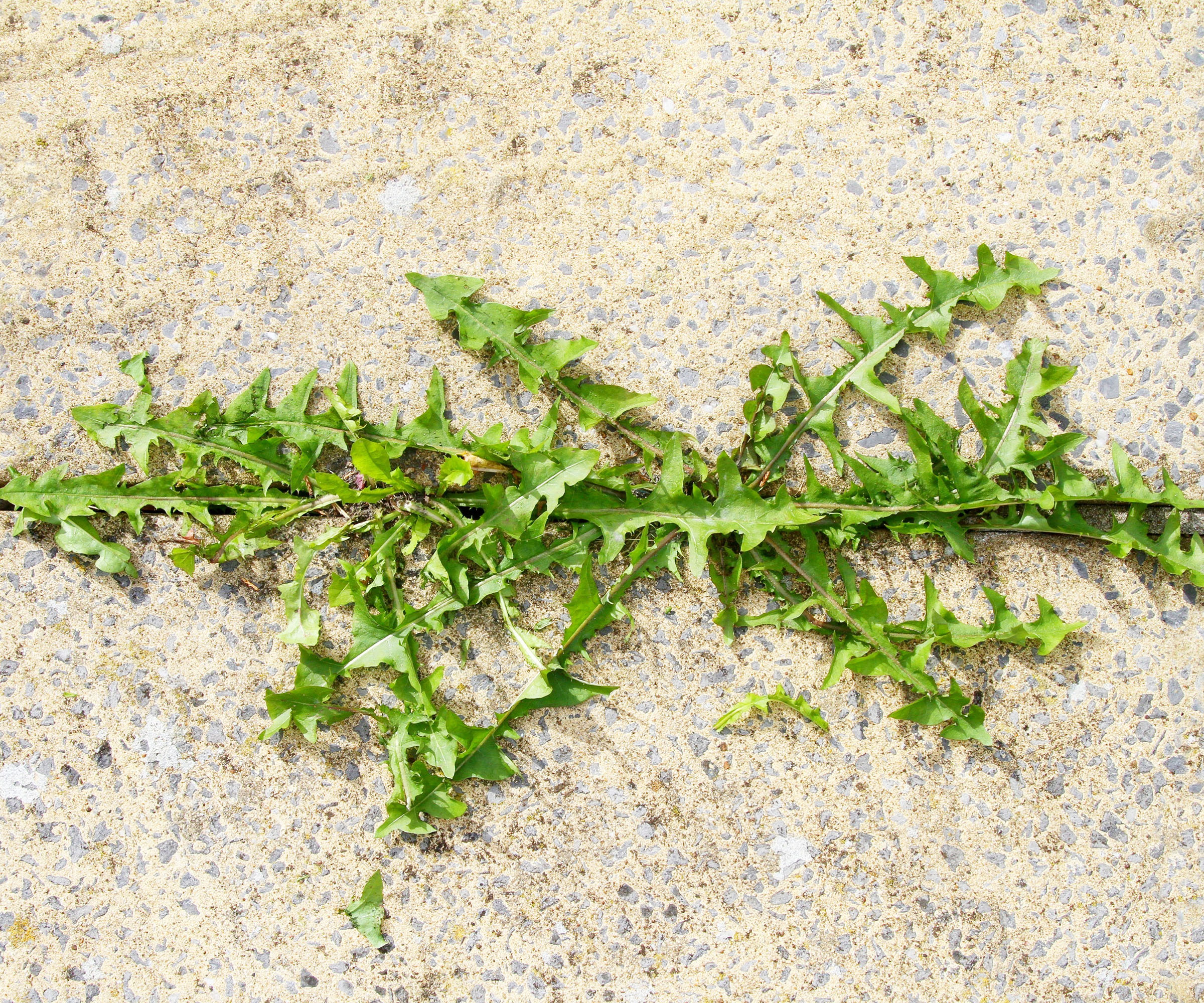
5. Pour or sprinkle on vinegar
Vinegar is often mentioned as a method of how to kill weeds naturally however
garden expert James Ewens, Commercial Director of Alexander Francis explains that it may not be as effective as it's sometimes sold.
"While vinegar can be used to get rid of weeds, it isn’t as effective used on its own. Vinegar is best used as a weedkiller when used in a solution, mixed with water alongside another agent such as baking soda, salt, or washing-up liquid to make the most of its herbicidal properties," says James.
"Be sparing with its application, however, as stray sprays of the solutions can quickly end up damaging nearby plants, along with damaging the soil with prolonged use."
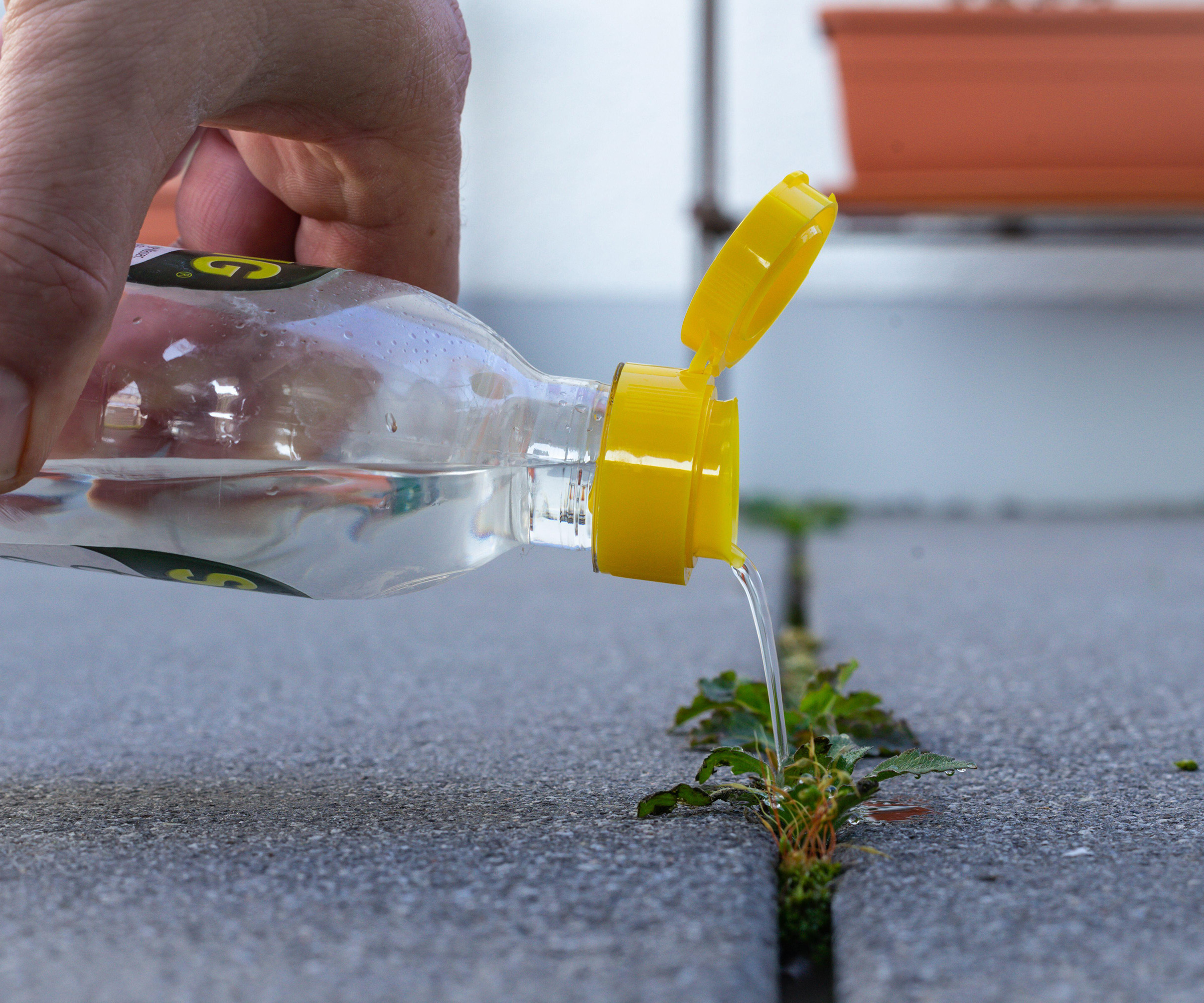
6. Use eco-friendly weed killers
There are now many eco-friendly weed killers available to buy like this Roundup Natural Weed Control Ready To Use 3L at B&Q. These solutions usually come in a spray bottle. Simply spray the solution directly onto the weed and leave it to do its thing. These eco-friendly weed killers will usually kill off the weeds within a few days.
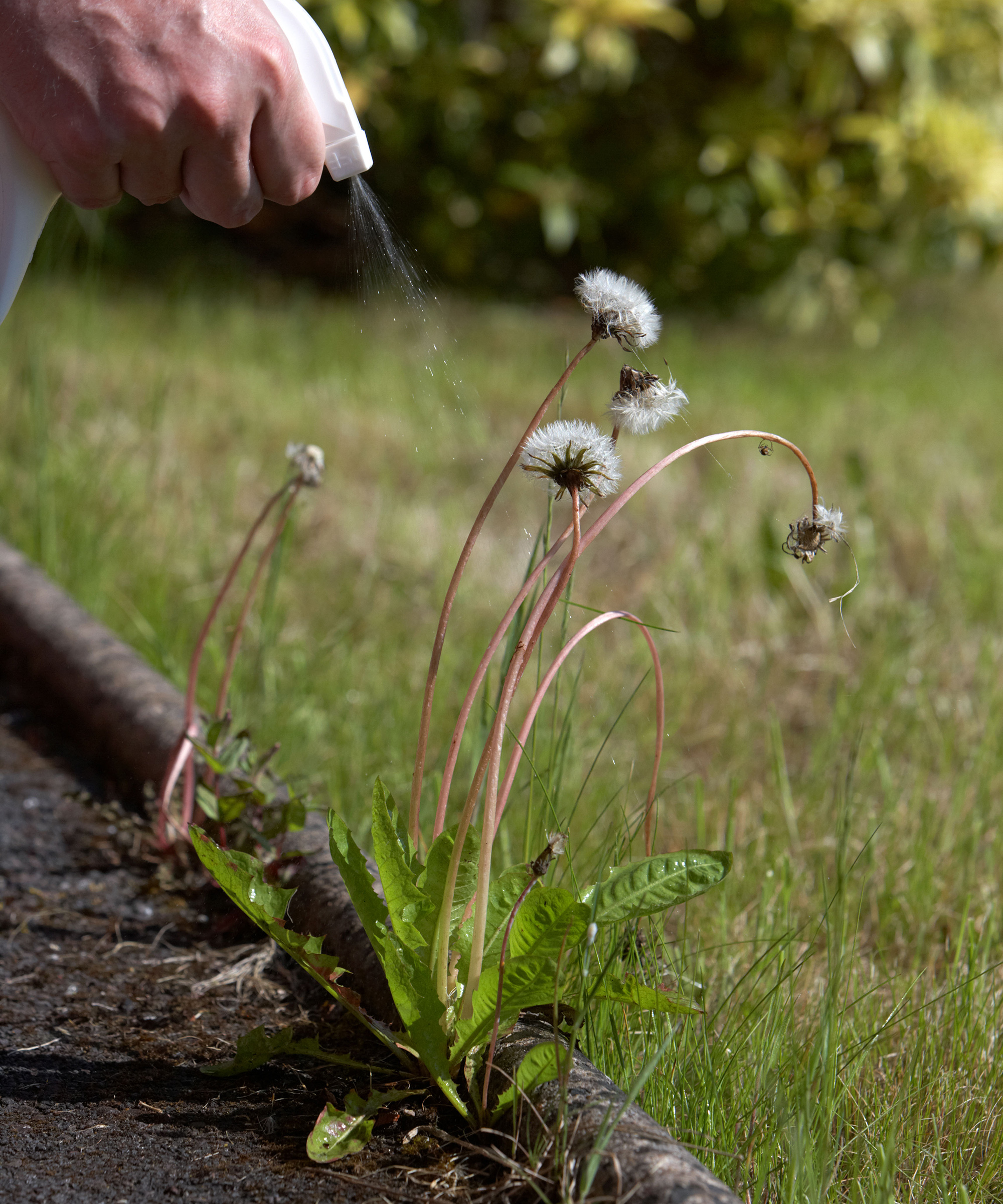
7. Add alcohol (sparingly)
"Using alcohol as a weedkiller is a bit of a double-edged sword, as while it is extremely effective, it can also be very damaging. Alcohol works as a weedkiller by drawing the moisture from the plants and severely dehydrating them, however, it’s difficult to limit the effect to just one plant," says James Ewens.
"If the alcohol gets into the soil it can quickly spread to surrounding plants and quickly impact their health, as well as damaging the soil at the same time. There may be some cases where using alcohol would be preferred, e.g. getting rid of weeds sprouting between paving slabs or on driveways, but even then it should still be used with caution," says James.
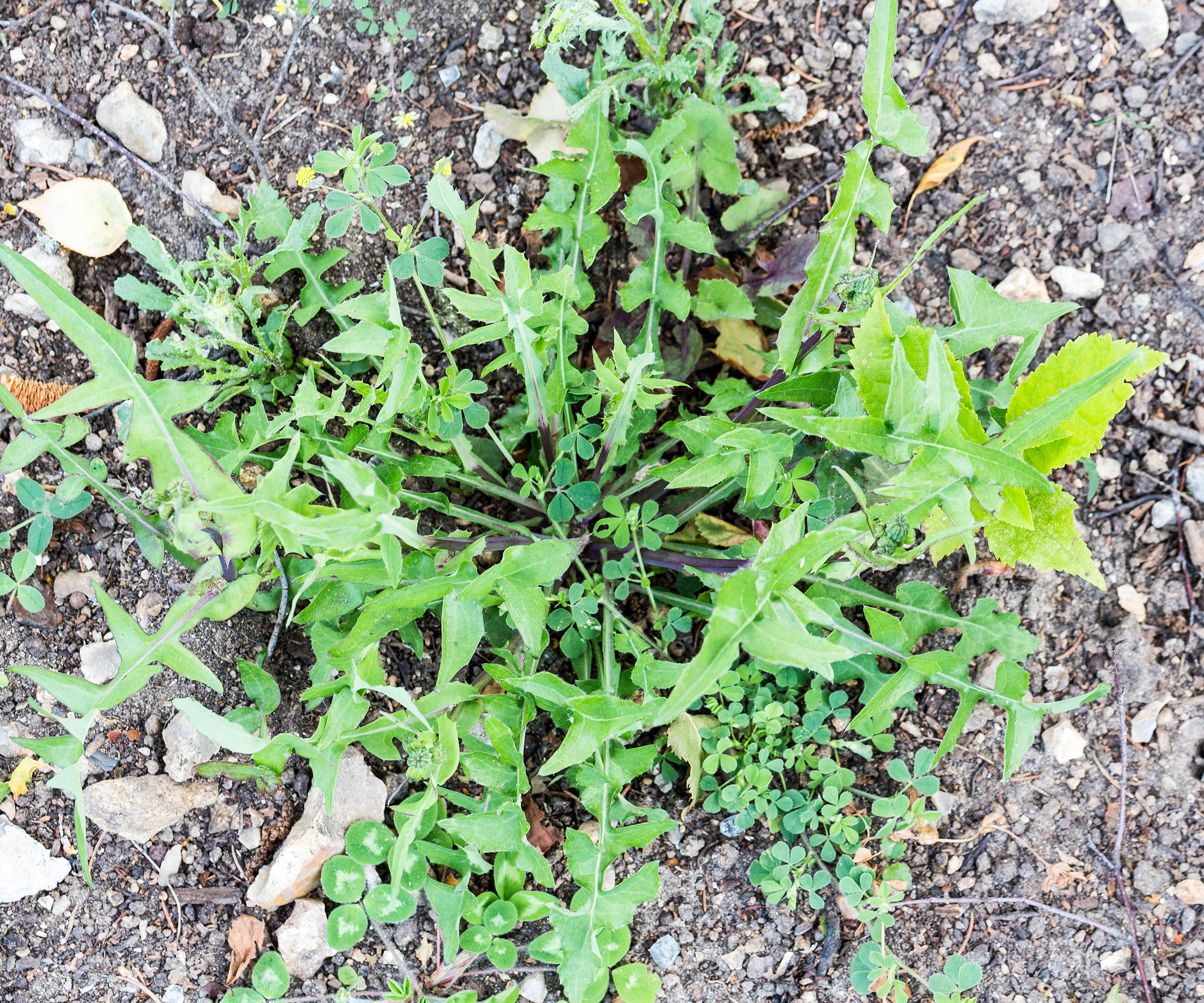
8. Pour on boiling water
Boiling water is another effective method of removing weeds, however, it should yet again be used with caution advises James Ewens.
"Boiling water is best used in areas with no surrounding plants as it can be very difficult to be precise with and can quickly damage the roots of any that it comes into contact with, but is an excellent choice for patios and weeds in other small nooks and crannies," says James.
FAQs
How do you pull up weeds to get rid of them?
"You can use a hand trowel or garden fork to dig weeds up out of the ground, but ensure that you have pulled up the entire root as any small pieces left behind can potentially grow into new weeds," says Craig Morley, a gardening expert from Budget Seeds.
"If pulling out weeds by hand, it is best to do this after it has rained so that the soil is soft. Pull out the whole weed including the roots, as this will stop them from spreading before they have a chance to set seed."

Craig Morley is the Head Of Sales and Operations at Budget Seeds, with a number of years of experience in the gardening and agriculture industry. Working alongside hundreds of different plant varieties every day.
Does vinegar kill weeds permanently?
"Similarly to boiling water, vinegar may only kill the surface parts of the plant and not reach the roots. This means that the weeds may grow back, so you should try to pull any new shoots out of the ground as soon as you see them," says Craig Morley, a gardening expert from Budget Seeds.
What are common pitfalls of killing weeds naturally?
Some of the natural methods listed above may not work as well as chemical weed killers. In many cases, you will need to repeat the process several times before the weeds are eradicated completely.
Some of the methods listed above may also affect the surrounding plants and grass, so you need to be careful during the process.
For example, salt or boiling water could kill surrounding plants and grass, so it’s important that you only get the weed and not anything around it.
And if you are looking for solutions for how to remove weeds from gravel or how to get rid of bindweed be sure to check out our guides on these too.
Can alcohol kill weeds?
"Alcohol is efficient at killing weeds due to the water loss it causes, but it is not the best thing to use in your garden," says Craig Morley, a gardening expert from Budget Seeds.
"This is because when it is used in excess amounts it will begin to affect the soil in your garden, which can have a negative impact on the ecosystem in your garden. Changes in the soil may impact beneficial organisms and potentially kill other plants as the alcohol will cause water loss that weakens them
How can you prevent weeds from popping up in your garden?
There are several things you can do to prevent weeds from appearing in your garden. Craig Morley, a gardening expert from Budget Seeds gives his top methods below:
- Cultivate with caution: if you often turn over the soil in places such as flower beds, you should do this carefully as it may bring dormant seeds or bulbs to the surface. These may just be other flowers, but there is also a chance that they could be weeds.
- Mulching: mulching is a great way to prevent weeds from growing in the first place. When you apply a thick layer of organic matter to the top of your soil, you will suffocate any weeds that are trying to grow through. The mulch will also add nutrients back into the soil as it decomposes. You can apply a layer of material such as tarpaulin or mesh instead of mulching to prevent weeds, as this will last longer, but it will not have any nutritional value for the soil.
- Grow plants close together: weeds will often take advantage and grow in areas that are free of other plants. You can prevent this by growing plants closer together if possible, and ensure that bare patches of your lawn are overseeded
If you are looking for solutions for how to get rid of bindweed be sure to check out our guide on this too.

Teresa was part of a team that launched Easy Gardens in 2018 and worked as the Editor on this magazine. She has extensive experience writing and editing content on gardens and landscaping on brands such as Homes & Gardens, Country Homes & Interiors and Living Etc magazine. She has developed close working relationships with top landscape architects and leading industry experts, and has been exposed to an array of rich content and expertise.
In 2020 Teresa bought her first home. She and her partner worked alongside architects and builders to transform the downstairs area of her two bedroom Victorian house in north London into a usable space for her family. Along the way she learned the stresses, woes and joys of home renovation, and is now looking to her next project, landscaping the back garden.
